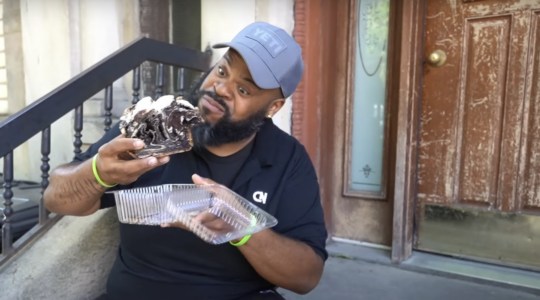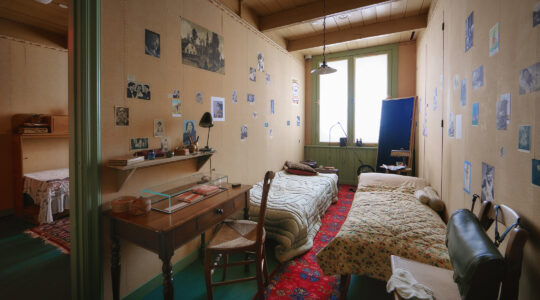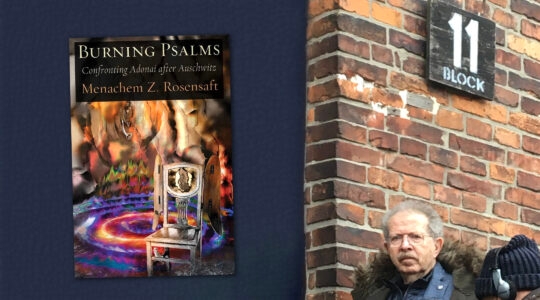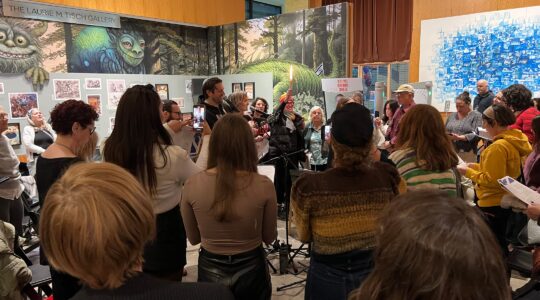It was billed as a dialogue between a young, anti-establishment figure, turned off by many of the Jewish community’s most venerable institutions, and the top executive of what’s arguably the community’s most established organization, UJA-Federation of New York.
But, at some points during the evening, it seemed as if their roles were reversed, with the young rebel coming across as the rugged individualist, resistant to any compromise, and the older speaker more of a collectivist, concerned about the common good.
Appearing before the Men’s Havurah of Congregation B’nai Jeshurun, the thriving synagogue on the Upper West Side, 30-year-old Daniel Sieradski and John Ruskay, 63, came together last Saturday night to discuss the Jewish community’s “next generation” and how to reach it.
Sieradski,who calls himself a “libertarian socialist” and “post-Jewish” in his Facebook profile, is a specialist in digital media who founded Jewschool, Radical Torah and Orthodox Anarchist, three provocative, left-leaning blogs. Ruskay, an anti-war activist in his youth, was once known as a rebel himself, helping to create Breira, a dovish-Zionist group active in the 1970s. But his career involved jobs at the Jewish Theological Seminary, the 92nd Street Y and, finally, federation, where he recently marked his 10th anniversary as CEO.
Sieradski began the dialogue, telling the audience that he grew up as a Modern Orthodox Jew in Teaneck, N.J., where his parents owned a kosher bakery. But his father refused to pay a “bribe” for a kashrut license, he asserted, and the family soon became outcasts in the Orthodox community, as he recalled it. It was at that point when the alienation started for Sieradski, who now participates in a small, independent minyan in Brooklyn.
“There’s a standing impression that young people are not interested in engaging in Judaism,” Sieradski said, adding that he doesn’t believe it. Instead, he continued, the community includes many young, passionate Jews whose views are largely ignored. Much of the Jewish world revolves around big donors — a group that leans to the right, Sieradski said — and that hierarchy freezes out anyone who doesn’t “toe the line.”
Placing an arm around Sieradski, Ruskay said many of the younger man’s comments resonated with him. But he rejected the notion that the biggest “cleavage” in Jewish life was generational. Instead, he said, the divide is between those in the community who want change and those who resist it.
“I know we look like a fortress to many,” Ruskay said, but “the door is entirely open” to anyone who wants to get involved. He encourages those devoted to change to join the leadership of their local synagogue or a federation agency, he said. And he added that only a central body like federation can mobilize the community to help the thousands of impoverished Jews in the city or aid the Jewish elderly.
Drawing a line between his days as a young activist and his past 10 years as a federation leader, Ruskay repeated what he’s said many times in the past — that it’s the federation today that represents “a set of counter-values in a society largely about I and me.”
The New York Jewish Week brings you the stories behind the headlines, keeping you connected to Jewish life in New York. Help sustain the reporting you trust by donating today.




